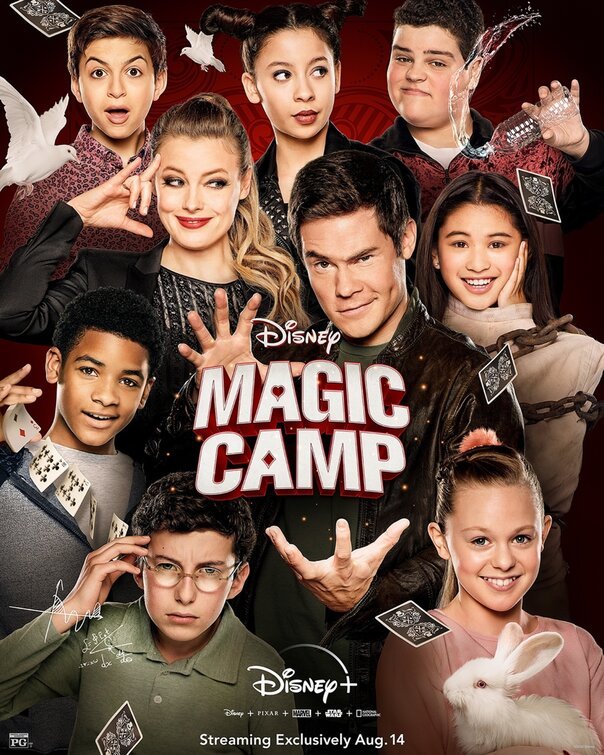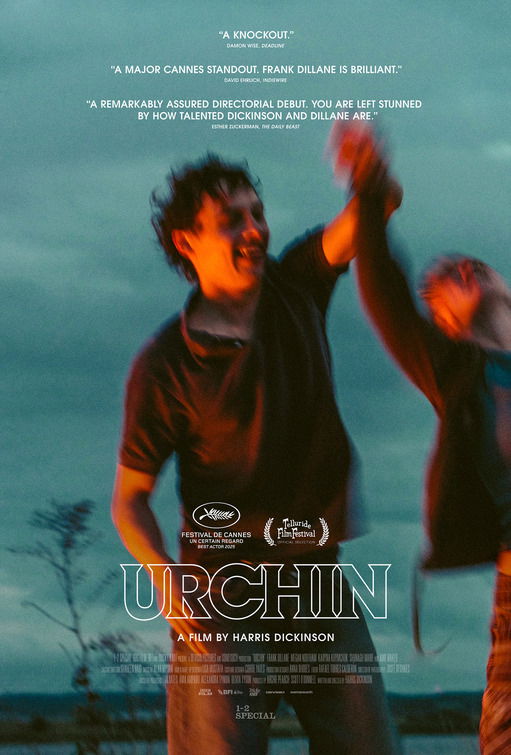“A Lost Soul and a Failure of Artistic Vision”

| None | Light | Moderate | Heavy | |
|---|---|---|---|---|
| Language | ||||
| Violence | ||||
| Sex | ||||
| Nudity |
What You Need To Know:
URCHIN has a certain authenticity to it. However, it’s a depressing, slow movie with an ambiguous ending. Does Mike descend into a nightmarish abyss, or has he been cast into the outer darkness of Hell because of how badly he abuses himself and other people? Who knows? Who cares? URCHIN also has a mixed worldview, lots of strong, gratuitous foul language, and other immoral content. The filmmakers don’t seem to be aware of recovery programs that use religious themes and human mentors to help addicts. So, URCHIN gives viewers a limited view of recovery.
Content:
Mixed pagan worldview of a homeless drug addict who tries to turn his life around after mugging a stranger, but the addict is his own worst enemy, and the movie reflects a humanist view of addiction and homelessness where the secular society and its government seem ineffective in handling much less fixing these issues from its secular viewpoint (and the movie never really questions this secular attitude, so the movie seems to fail its artistic responsibility here), but the movie also contains some Christian allusions and elements (the ending, for example, may suggest a vision of going to Hell as being cast into an outer darkness and the main character has slightly Christian visions), and a black street preacher mentions Jesus several times in one early scene but she’s also depicted as a bit strident and annoying, and a side character spouts some communist, anti-capitalist complaints;
At least 41 obscenities (including at least 29 “f” words) and one light profanity;
Homeless addict beats up a man offering him lunch and steals the man’s fancy watch, and a fight between two homeless men is broken up;
Implied fornication in one scene, implied self-abuse, some kissing, and it’s implied during one scene that another man is being kept by a rich woman as a gigolo;
Rear and upper male nudity as police in jail strip search a prisoner, rear and upper male nudity during a shower scene, and upper male nudity in two or three other scenes;
Alcohol use, drunkenness and alcoholism but not endorsed;
Tobacco smoking, and some marijuana, cocaine, heroin, and ketamine use where main character is a drug addict who doesn’t succeed in staying sober though he tries; and,
Main character mugs a charitable man and steals the man’s watch, homeless addict recovers his stolen wallet from another homeless addict, and main character is rude to his girlfriend, and she breaks off their relationship, which leads to what seems to be his final downward spiral.
More Detail:
URCHIN stars Frank Dillane as Mike, a young homeless drug addict who subsists on handouts. One day, Mike gets into a fight with another homeless addict who stole his wallet. An Asian man named Simon breaks up the fight, and Mike retrieves his wallet. Simon then offers to buy Mike lunch at a nearby restaurant. However, when they reach a little used sidewalk under construction, Mike suddenly hits the man and steals his fancy watch.
Mike is arrested and sent to jail for 14 months. To cut his sentence in half, the government orders Mike to attend psychotherapy sessions and regularly attend a job after successfully being sober. The government also places Mike in a room at a hostel, and Mike finds a job as a junior chef at a popular restaurant. Meanwhile, Mike listens to self-esteem tapes to encourage himself to maintain sobriety.
However, Mike’s temper soon gets the best of him, and the restaurant owner fires him. So, Mike gets a job as a park litter attendant and starts seeing a French co-worker named Andrea. Despite the possibility of finding a more stable, happier life with Andrea, Mike can’t seem to shake the personal problems that led to his addiction. Will he ever straighten out his life?
Writer/Director Harris Dickinson, 29, who’s been starring in movies since 2017, reportedly grew up in London around people struggling with addiction and privately works with homeless groups on the side. So, URCHIN has authenticity to it.
However, parts of the movie are depressing. Also, the ending is ambiguous. For example, the ending can be interpreted in two ways. First, the ending shows the homeless addict descending into a black abyss of his own making. Or, the ending can be interpreted as the homeless addict being cast into the outer darkness of Hell, a punishment for the terrible way he’s been treating the other people around him.
It’s important to note here that the society’s approach to Mike’s drug addiction and criminality in URCHIN is rather secular and godless. So, no wonder the government is unable to help Mike overcome his addiction, or even to address the root spiritual and psychological causes behind his addiction. Recovery programs based on the Christian approach of Alcoholics Anonymous are well known, but the British writer/director behind URCHIN, despite his claims to be aware of the issues of addiction and homelessness in real life, doesn’t seem to be aware of them at all. Thus, his movie never addresses the godless, secular manner in which the government officials in his movie approach Mike’s problems. This is a troubling failure of artistic vision that limits the movie’s appeal.
Also, URCHIN never shows Mike going to recovery meetings with groups of other people, and he doesn’t have any mentors to help him at all. So, no wonder his self-esteem meditation tapes don’t really help. This seems to be another failure of artistic vision.
URCHIN also has lots of strong obscenities and some sexual references. Finally, there are scenes where Mike has bizarre hallucinations and dreams. Some of these seem to have religious connotations, but they are too cryptic and even seem pretentious.


 - Content:
- Content: 

